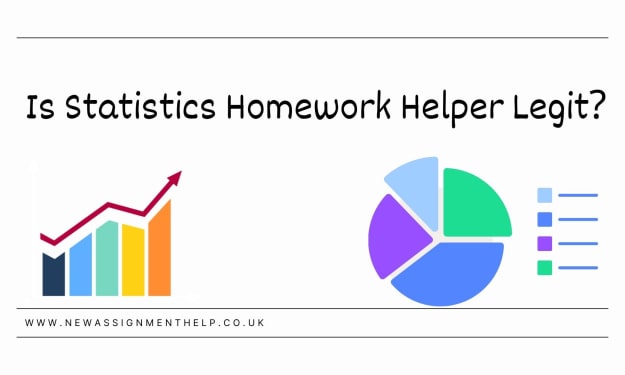Interpreting the "New Curriculum Plan and Curriculum Standards"
Language is King

The article on "New Curriculum and Standards" focuses on some obvious misinterpretations - for example, "English has been drastically reduced in class time"; for example, The new curriculum and standards" are analyzed with a focus on some obvious misinterpretations - for example, "English is drastically reduced in class time"; for example, "arts subjects are given more weight".
These misinterpretations, if one were to look into them, are caused by two factors.
The first kind is deliberate pacing and ill intent. This is the most detestable, seizing the weakness of most parents and children's asymmetric information, inciting anxiety. For example, "the significant reduction in English class time, will inevitably lead to two results, one is the reduction in class time, the difficulty of the increase; the second is the reduction in class time, the status of other subjects and points increase"; for example, "the proportion of art subjects increased, the consequent conclusion is that the proportion of increased difficulty, increased difficulty, increased difficulty, the school The teaching of art is not enough to meet the needs of the test" ...... Look at the logic of this language, setting a well-stated premise and logically deducing a variety of conclusions, either of which, I'm afraid, is what the pacers want. The problem is that the premise is wrong, and the conclusion is not valid.
The second kind is non-professional analysis. Because education has "public and private" two attributes, both about each of our families, and each child, but also about the future of the country, the hot spot is high, more controversy. Most of the "lay spectators", because it is related to the future of their children, express their opinions, views, and ideas, there is no excuse. Even because of the "non-professional", said the problem, it is also the case, it should be, "the world's affairs of the world," well.
But what is incomprehensible is that the group of "experts", "scholars", "professors", and "V" status are The people who have some influence on public opinion. If we say they are professional, they are indeed knowledgeable and of high status. However, they are expressing some unprofessional views, which is very dangerous, because such people should be more careful with their words, and what they say is most likely to mislead people.
From "shouting for the abolition of SSPA" and "universal compulsory high school education" to "concluding the abolition of the general secondary school entrance examination stream after seeing only a few words of the newly revised general vocational law", to the recent emergence of a new term "education The new term "education inversion" has emerged recently. Some people do not have any research, discussion, or thinking about compulsory education, but when they want to make their presence felt, they jump out. This kind of people, the most irresponsible, this kind of people, but also the ablest to pit people!

Recently, some wrong interpretations of the new "curriculum and standards" led by this kind of people have become popular on the Internet, and they are always regarded as the "golden rule". Among them, the most inexplicable is "the era of language as the king has arrived"!
The people who came to such a conclusion have two seemingly "unbreakable" proofs in their hands.
The first is that the language is at the top of all subjects, and its status has increased dramatically, and it is "the best of the best", holding the C position.
In the "new curriculum", the total number of hours for nine years is 20%-22%, which is the highest ratio among all 16 subjects. The following chart.
Thus, language has become the most important subject with an unshakeable position.
It is very simple to break this so-called evidence. To argue that the status of language has increased, it is necessary to compare it with the previous one and to make a longitudinal comparison, rather than just looking at the "2022 Edition" of the curriculum. So let's look at the 2001 version of the curriculum, as follows.
The language lessons, whether in the "2001" or "2022" edition, have not changed. Since there is no change in class time, how can we conclude that the status of language has increased? So to speak, "language, mathematics, and foreign language", the three subjects in the traditional sense of the main subject, in the new version, there is no change in the class time, which means that these three subjects are still the main subject of compulsory education, and even, the 2022 version of the "curriculum program" also added a sentence: "English is offered at the primary level, and the starting point is English. "English at the primary level, the starting grade for the third grade, the conditions of the region and schools can be opened in the first to second grade, to hear the main." In other words, if we say that the three main subjects, objective analysis, foreign languages may be in the future in some "conditional" areas and schools to increase the corresponding class time. In short, the logic that language will improve its status because of class time is not valid.
In reality, it is an indisputable fact that languages have been marginalized among the three main subjects. To say that it is marginalized is not to say that schools have less class time, but that the level of attention and awareness is insufficient.
The author has been teaching language for nearly twenty years and has come into contact with many different kinds of parents and students. To put it bluntly: parents and students attach more importance to the language, compared to math, foreign languages, and even physics and chemistry, which are included in the "differentiated" subjects of the midterm, is not enough, for the simple reason that the language is slow and difficult to achieve in a short period!
The reason for this is that language learning is slow and difficult to achieve in a short period. "The first thing you need to do is to make sure that you have a good idea of how many words you have to write before you take the test.
A joke: the primary school selection test, the junior high school pinch, then the "OU", not the language; to the junior high school contract, the index test, some high schools only look at the science results, not language; the quality of secondary school competition classes, the competition is the science, not language.
This is the current situation of the language, in fact, those who roar the language to steadily occupy the C position, there are not many down earth to put their minds on the language, serious study, serious research.
By the way, there is also a fallacy derived from the "most time for language" that the new curriculum plan "emphasizes literature over science"! Therefore, in this new curriculum program, the state attaches more importance to the arts and neglects the sciences, and some people even criticize that the sciences are the foundation of a strong nation, while the arts are only instrumental subjects.
This conclusion is untenable when comparing the lesson schedules of the 2001 and 2022 editions. 2022 edition does not change the original lesson time of mainstream subjects, instead, there are two obvious changes: 1. science is set from the first grade, so the lesson time is increased; 2. information technology is finally clarified in the new curriculum (some schools have already added this subject in the past few years), and the lesson time is given. These two changes show how much importance the state attaches to "science".
The problem with this conclusion can be identified by looking at the current "weighting" of subjects in the secondary school exams. If we have to divide the arts and sciences, languages and foreign languages are considered liberal arts, and mathematics, physics, and chemistry are considered science subjects, and their scores are equal. The value is the same, and some places have begun to reduce the value of English.
The new "Curriculum Standards" specify that one of the core qualities of the language is "cultural confidence", and the language will significantly increase the proportion of "literary texts and poems".
The 2022 version of the "curriculum standards" compared to the 2011 version the "curriculum standards", indeed increased the core literacy of language, not only language, all subjects are clear core literacy, which the "2022 version This is the biggest highlight of the "2022 edition". I will write a special article later to discuss what "core literacy" means for language learning.
The "2022 edition" proposes four core literacies for language learning: cultural confidence, language use, thinking skills, and aesthetic creativity.
There is a misinterpretation that equates "cultural confidence" with "literary and ancient poetry", and the "2022 edition" also proposes that primary school students must master The 2022 edition also proposes to increase the number of "ancient poems in Chinese" from 129 to 160, so that "ancient poems in Chinese" becomes the top priority of language learning. These two points prove that the importance of language learning has increased and is the most important of all subjects.
Obviously, "cultural confidence" covers a wide range of areas, including "traditional culture", "revolutionary culture", "advanced socialist culture", and "advanced socialist culture". It is to improve identification with Chinese culture and enhance confidence in the vitality of Chinese culture through "traditional culture", "revolutionary culture" and "advanced socialist culture". If "cultural confidence" is equated with "literary ancient poetry" is too narrow.
The Ministry of Education recently issued a notice on the design of Chinese examinations, which mentioned "reducing the number of memorized test questions". The number of texts in primary schools will continue to increase, but in secondary schools, there is not much room to increase the number of texts, and some of them will even be deleted.
From this, we can see that the introduction of the "New Curriculum and Standards" is a change of specific teaching, including objectives and methods, without adjusting the status of the main subjects; the refinement of the art subjects and the stripping out of the labor subjects are the rectification of the "five education subjects", which cannot prove that the "language is king" era. The refinement of art subjects and the stripping out of labor subjects is a reorganization of the "five education subjects", and does not prove the coming of the era of "language is king".
Please ask all the so-called "experts" to treat education with attitude, not with traffic to cope with education.
About the Creator
Karpenaru
Knowledgeispower.
Enjoyed the story? Support the Creator.
Subscribe for free to receive all their stories in your feed. You could also pledge your support or give them a one-off tip, letting them know you appreciate their work.






Comments
There are no comments for this story
Be the first to respond and start the conversation.